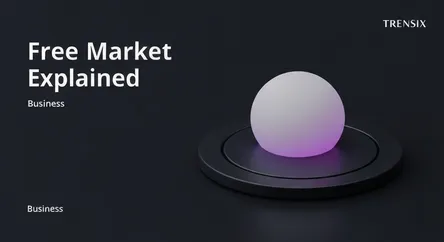Business
Free Market Explained

Explore the free market, an economic system driven by supply and demand with minimal government intervention. Learn how it works and its real-world impact.
What is it?
A free market is an economic system where prices for goods and services are determined by the open market and consumers. In this system, the laws and forces of supply and demand are free from any intervention by a government or other authority. Key characteristics include private ownership of resources, voluntary exchange, and robust competition. Proponents believe this 'laissez-faire' approach naturally leads to the most efficient and socially optimal allocation of resources, fostering innovation and economic growth without central planning.
Why is it trending?
The concept of a free market is constantly trending due to ongoing global debates about the appropriate level of government regulation. Discussions around inflation, tech monopolies, and international trade policies frequently reference free market principles. Furthermore, the rise of decentralized finance (DeFi) and cryptocurrencies is seen by many as a modern digital iteration of a pure free market, operating outside traditional government control and reigniting conversations about economic freedom and its potential consequences.
How does it affect people?
A free market directly impacts daily life by influencing the prices you pay, the variety of products available, and your job opportunities. Competition can drive prices down and quality up, giving consumers more choice. However, it can also lead to significant income inequality and market failures, where essential services like healthcare or education may become unaffordable for some if not profitable. The balance between market freedom and government regulation shapes a society's economic landscape and social safety nets, affecting everyone's financial well-being.